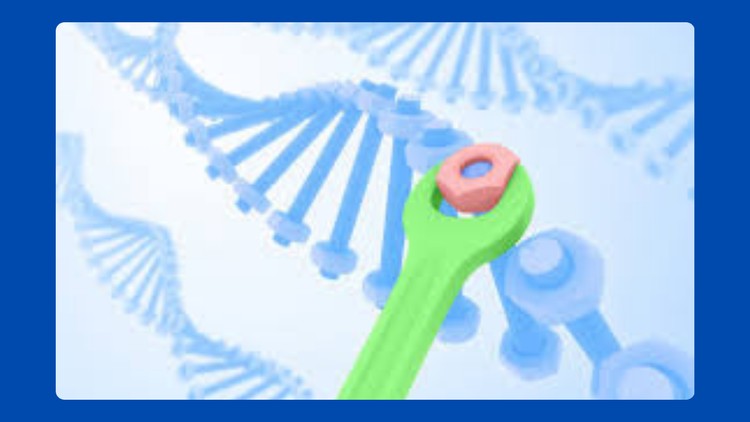
Biochemistry: USMLE step 1
What you will learn
Understand DNA Replication Mechanisms:
Identify and explain the functions of key enzymes involved in DNA replication, including DNA polymerases, helicases, primases, ligases, and topoisomerases.
Compare and contrast the roles of DNA polymerases in prokaryotic (Pol I, II, and III) and eukaryotic (Pol α, δ, and ε) replication.
Understand the differences in replication origin and termination between prokaryotes and eukaryotes.
Describe the different types of DNA repair mechanisms, including nucleotide excision repair (NER), base excision repair (BER), and mismatch repair (MMR).
Why take this course?
🚀 Course Title: Biochemistry: USMLE Step 1
🎓 Course Headline: Master Biochemistry 🦕 with “DNA Replication and Repair” by Dr. Rehab Moustaph Abdel Fadel!
Course Overview:
Discover the marvels of DNA replication and repair in our comprehensive course, designed for students eager to excel in the USMLE Step 1 exam. Dive deep into the fundamental concepts that form the backbone of biochemistry, all presented in an engaging and accessible style. Whether you’re fluent in English or Arabic, this course is tailored to cater to your linguistic needs, ensuring a seamless learning experience.
What You’ll Learn:
- DNA Replication Mechanisms: Explore the intricate details of DNA replication across both prokaryotic and eukaryotic cells. Learn about the key enzymes and proteins involved, such as DNA polymerases, primases, ligases, helicases, and topoisomerases. 🔬
- Prokaryotic vs. Eukaryotic Replication: A closer look at the distinct DNA polymerases in prokaryotes (I, II, III) and the roles of DNA polymerases α, δ, and ε in eukaryotes’ replication process. 🎨
- Eukaryotic Specifics: Delve into the unique function of telomerase and its significance in maintaining genome stability and ensuring cell longevity. 🌳
- DNA Repair Mechanisms: Gain insights into various DNA repair pathways, including:
- Nucleotide Excision Repair (NER): Learn how this mechanism repairs harmful UV-induced damage like thymine dimers. ☀️
- Base Excision Repair (BER): Understand the process for correcting minor, non-helix-distorting base lesions. ✅
Clinical Correlations & Impact:
- Genetic Disorders: Investigate the clinical implications of defects in DNA repair mechanisms, including conditions like xeroderma pigmentosum (XP) and hereditary nonpolyposis colorectal cancer (HNPCC or Lynch syndrome). 👩⚕️🤝
- Real-World Applications: Integrate molecular biology with real clinical cases to solidify your understanding and enhance your problem-solving skills in the medical field. 🌍
Why Choose This Course?
- Expert Instructor: Learn from Dr. Rehab Moustaph Abdel Fadel, whose expertise will guide you through complex biochemical concepts with clarity and precision. 🏫🔍
- Interactive Learning Experience: Engage with interactive content designed to keep you focused and motivated throughout your learning journey. 🎓✨
- Comprehensive Coverage: From molecular details to clinical relevance, our course is structured to ensure comprehensive understanding of DNA replication and repair for the USMLE Step 1 exam. ✅
Enroll in this course to enhance your grasp of biochemistry and confidently tackle the USMLE Step 1 exam with the tools and knowledge you need for a successful career in medicine. 🏥🚀